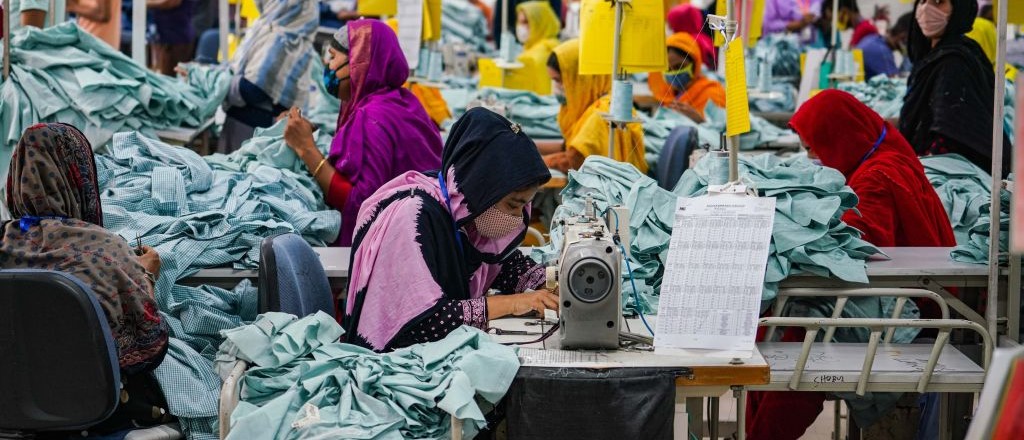‘A starting point’
Following political pressure on both sides of the Atlantic, global tech giant Amazon has announced that it will raise minimum wages for all its UK and US staff from November 1.
About 350,000 workers in the US will benefit from the wage hike to $15 (ÂŁ11.57) an hour, while about 40,000 UK staff, including part-time and seasonal workers, will see their hourly earnings rise to ÂŁ10.50 an hour in London and ÂŁ9.50 an hour in the rest of the country.
The wage hike for American workers amounts to double the US federal minimum wage of $7.25 (£5.58) while UK Amazon workers’ pay will rise significantly above the government’s mandatory minimum wage of £7.83 for over 25s.
The UK Amazon rate will now be even higher than the â€real Living Wage’ – a wage calculated each year by the Living Wage Foundation to reflect the actual cost of living. This Living Wage now stands at ÂŁ10.20 in London and ÂŁ8.75 across the country.
“We listened to our critics, thought hard about what we wanted to do, and decided we want to lead,” Amazon founder and chief executive Jeff Bezos said. “We’re excited about this change and encourage our competitors and other large employers to join us.”
Bezos – among the richest men in the world with an estimated net worth of $150bn – has long come under fire for the massive pay gap between him and his employees. Bezos has also been denounced by politicians and trade unions alike for being at the helm of a company known for its draconian labour practices.
Horror stories from Amazon’s massive warehouses have emerged of workers urinating in bottles so that they wouldn’t have to take toilet breaks that could jeopardise them meeting productivity targets. Workplace injuries are common – Amazon is one of a dozen companies on a workplace safety ranking in America that are considered the most dangerous companies to work for.
One woman reported that after she seriously hurt her back, Amazon refused to compensate her and eventually stopped providing her with medical treatment. The woman is now homeless. According to GMB research, ambulances have been called out to Amazon UK warehouses 600 times in the last three years alone.
Union-busting
Unionising efforts from workers have also been met with outward hostility. Management at American supermarket chain Whole Foods, which was acquired by Amazon last year, have been given explicit training on union busting techniques after workers there have moved to organise.
In one training video, management are instructed on how to spot â€the warning signs’ of unionisation, including workers staying after their shifts have ended or using â€union words’ such as a â€living wage’.
Amazon has also been widely denounced for paying virtually no tax on the billions of pounds it makes each year, most recently by the Archbishop of Canterbury Justin Whelby.
“Not paying taxes speaks of the absence of commitment to our shared humanity, to solidarity and justice,” the Archbishop said in a speech to the TUC conference last month. “If you earn money from a community, you should pay your share of tax to that community. But when vast companies like Amazon, and other online traders, the new industries, can get away with paying almost nothing in tax, there is something wrong with the tax system.”
Amazon’s latest wage hike, which has garnered widespread publicity, has also been criticised by some as a mere public relations exercise – the pay rise accounts for only 1 per cent of the $235bn in revenue estimated for this year.
What’s more, it is understood Amazon will be doing away with bonus incentive and stock option schemes for its warehouse workers, which may in fact offset the cost of the headline pay rise. This so-called â€robbing Peter to pay Paul’ tactic is common – Unite has recently fought Sainsbury’s over new contracts that will leave many staff worse off despite an hourly pay rise, after other perks such as premium Saturday pay are removed.
Labour movement victory
Still, the Amazon pay rise has been lauded as a victory for labour movements in the US and the UK – it’s no coincidence that Amazon raised wages to $15 an hour, the same rate that unions across the US have been fighting to raise the legal minimum wage to.
Trade unions in the US and the UK have both welcomed the pay rise but urged Amazon to recognise unions.
“Amazon is a trillion-dollar company,” said TUC general secretary Frances O’Grady. “It can easily afford to pay staff higher wages.
“If Amazon is really serious about looking after its workforce it must recognise trade unions,” she added. “And it must end the exploitative working practices that have seen hundreds of ambulances called to its UK warehouses.
“All workers deserve decent conditions at work – not surveillance, inhuman targets and the threat of a disciplinary if they to go to the toilet.”
Unite assistant general secretary Steve Turner agreed.
“Make no mistake – this pay rise isn’t the result of newly-charitable Jeff Bezos having suddenly seen the light,” he said. “It’s an outcome of years of labour movement campaigning that has spread like wildfire and caught the popular imagination. Put simply, Amazon caved in to the immense public pressure, led by trade unions, both here and in the US.
“Ordinary people – both as workers and consumers – have had enough of being treated as mere afterthoughts when it is they who create these giant corporations’ wealth, even as these same corporations shirk their responsibility to society by failing to pay tax,” Turner added.
“While the Amazon pay rise is welcome, it should only be seen as a starting point – workers’ true power comes from a collective, recognised voice in the workplace that can bargain not only for higher pay but for better terms and conditions – for real dignity at work.”
 Like
Like Follow
Follow

